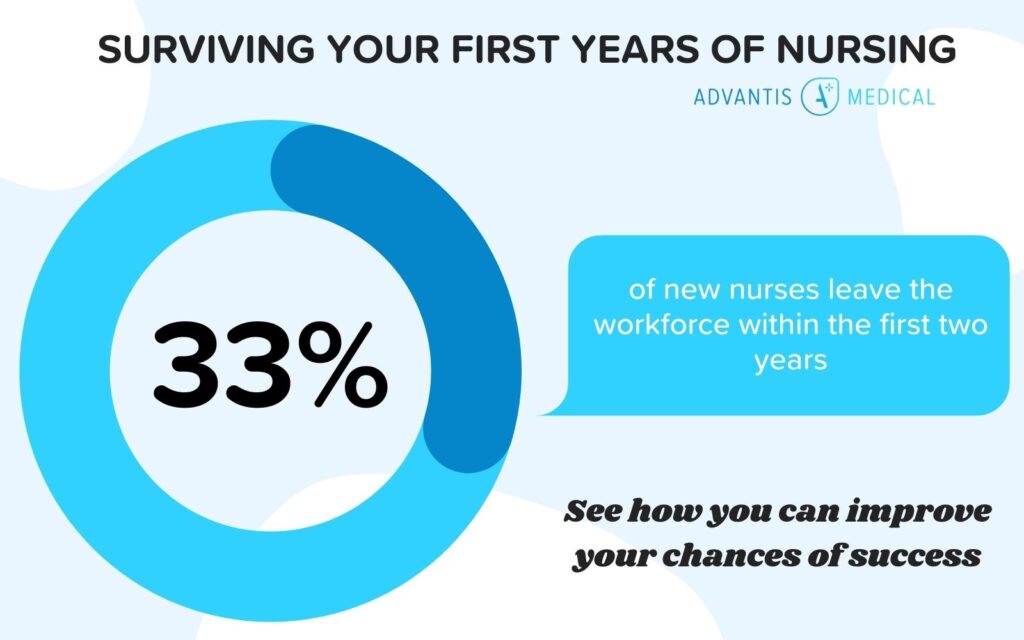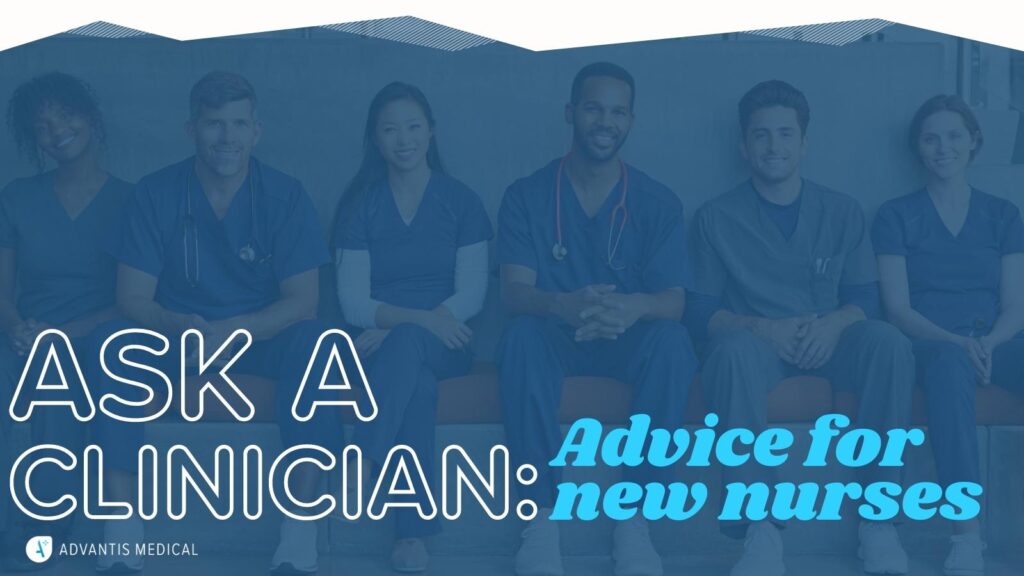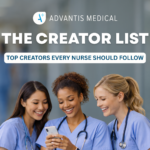Donna Schisler RN, BSN, draws on her years as a travel nurse and extensive leadership training to share with clinicians the advice she wishes she’d received in nursing school.
Today, Donna gives us valuable advice for early nursing career success. Here’s what she shared.
What new grad nurse advice would you give for RNs starting their first year of work?
Start with patience and perspective. Be ready to really learn what it means to be a nurse. Nursing school teaches us so much but, it is an exceptional amount of information that is difficult to retain without actually seeing or doing. Clinicals give us a peek into different specialties and do help with the process of really learning the material, but it is shocking how much you don’t really know when you finally step into the nurse job.
Orientation is typically 8 weeks when you start your nursing job. Take that time to soak up every bit of information you can before you are on your own! It will be ok. Sure, your first year will be nerve wracking, but also rewarding. You can do it if you go in with a mindset of learning!
How did you survive your early days as an ICU nurse?

I asked questions. So. Many. Questions. Some nurses start their careers thinking they have all the knowledge they need because they made it through school. Yes, I walked away with a lot of education, but putting that education into practice is a whole new skill.
I started at an amazing hospital that put us through a new grad program our first year. This program gave us the opportunity to continue to learn and really absorb a great deal from experienced nurses. I had a great preceptor who was happy to teach and encouraged my questions. The more I asked, the more my confidence grew in my preceptor and in myself. Anytime a procedure or test was being done that I had not seen or really needed to learn, I would make sure I was in the room to observe or participate.
So much about nursing is scary at first, because you are learning on human beings who are just as scared as you! Almost all skills are learned through repetition rather than having a natural ability. For example, I made it a goal to become a “vein whisperer (amazing at placing IVs) and asked to place IVs on other nurses’ patients. I even took time to follow a nurse anesthetist for a day to watch her insertion techniques on all types of veins. It was very effective, and I continue to use and teach those skills. The biggest piece of advice for new nurses is to always be ready and willing to learn from experienced nurses.
What do you wish you knew more about sooner?
As a new nurse looking for advice, I wish I had known more about critical thinking and how it affects patient care. Critical thinking was not a priority lesson in nursing school, and yet I think it is one of the biggest priorities in nursing practice. This is mostly a learned skill, which is developed over time, and is critical to patient care and safety, especially in critical care units.
Having each nursing class take time to teach how critical thinking would affect a patient in that specialty would have made me feel more prepared on the day I stepped onto the hospital floor. This could be done through scenarios, and even more effectively, using technology to simulate minute changes in patient conditions which would lead to patient deterioration and death without the nurse recognizing how the slightest changes can have a devastating impact.
About Donna Schisler
Donna Schisler RN, BSN, Clinical Manager has 9+ years of experience as a critical care travel nurse, legal nurse, and clinical manager. Exhibiting exceptional achievements in her career, she was invited to the Sigma Theta Tau International Honor Society of Nursing within only 6 years of graduating from the Methodist College of Nursing. Today, she is a legal consultant helping people when they are most vulnerable to receive justice, helping nurses acclimate to travel nursing and educating the public about the world of nursing.









